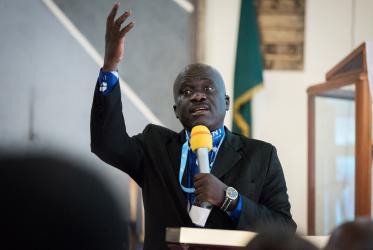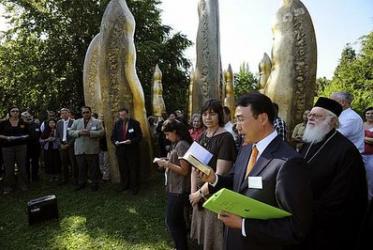Displaying 1 - 10 of 10
Churches in southern Africa stand against violence, xenophobia
10 October 2019
WCC supports UN petition from French Polynesia
07 November 2018
WCC conference explores ecological injustice in Uganda
21 April 2016
WCC Executive Committee speaks out on migrant crises
12 June 2015
Churches must be "salt of the earth"
31 August 2009





